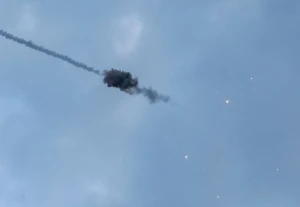
Why Trump is “changing” his views on Ukraine and what it means
Trump's strategic approach in the lead-up to the election appears to be grounded in the idea that, under his leadership, Putin would refrain from using nuclear weapons
1. Similar to his statements regarding negative sentiments toward Ukraine, the immediate recall of the ambassador, and interference in the American elections, Trump's decision to meet with Zelenskyy serves as a pre-election political strategy.
2. Following bold statements from Republicans and a brief pause, Kamala Harris issued a very clear and unambiguous message, which was summarized succinctly by McFaul: “Harris is for democracy and Ukraine, while Trump is for Putin and dictatorship.” Notably, this statement reflected a unified stance from all pro-democratic voices, including intellectuals like Harari.
3. What happened next can only be speculated, but with a high degree of probability, we can assume that either sponsors and party elders pressured Trump (as they did in March, for instance, when they unblocked the aid package for Ukraine), or quick polls showed that Trump's statements were only hurting him. It is also possible that both factors played a role simultaneously. As a result, Trump had to backtrack and hold a lukewarm, formal meeting.
4. After the meeting with Zelenskyy, Trump continued his mantra that only he can prevent a Third World War (read: "nuclear war"), while if Harris wins, it will inevitably happen. In other words, his strategic approach for the election appears to be based on the claim that, under his leadership, Putin will not use nuclear weapons. Meanwhile, in Russia, the opposite is happening, with growing tensions. For instance, just yesterday, Russian authorities announced a week of drills in schools on "What to do in case of a nuclear threat."
5. Amid all this, the victory plan has been somewhat lost. While we hear strong words of support, the only concrete action Biden has taken is unfreezing $7 billion in aid, which does not include long-range weapons.
The expectation of swift decisions from Biden, who was anticipated to secure his place in history by promising Ukraine's entry into NATO, did not materialize.
6. The results of Zelenskyy's trip to the U.S. should not be viewed in black-and-white terms. Due to various circumstances, often unrelated to Ukraine, the country has become one of the factors in the U.S. election campaign. However, this role should not be overstated. Today, the main topic is that Trump dodged a question about job creation and once again failed a fact-check regarding his past statements.
7. Our main problems have been and remain internal fragmentation and the lack of dialogue, as well as a complete disregard for global processes (living in a "Ukraine-only" mindset). Without addressing these issues, we will not be able to move forward.
About the author: Vadym Denysenko, political scientist.
The editors do not always share the opinions expressed by the blog authors.
- News













































